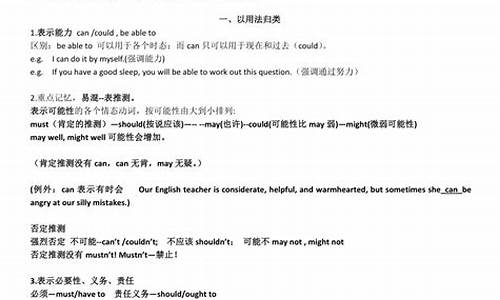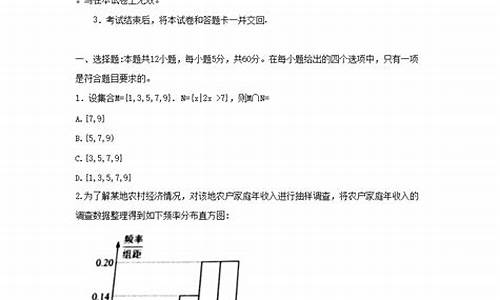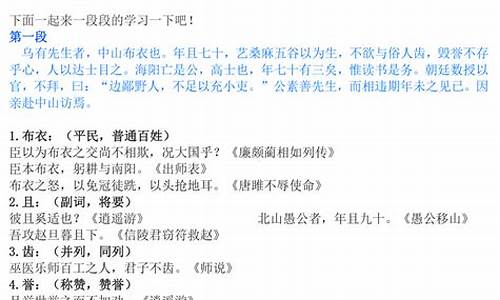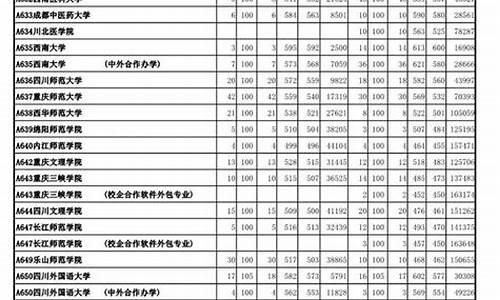高考情态动词复习,高三情态动词
1.张家界成人高考英语备考攻略
2.高考英语 情态动词
3.高考英语语法:高中英语语法-need 与dare 的动词用法 (二)
4.怎样使用情态动词shall/should/must
5.高考情态动词语法题
6.求高考英语 谓语,非谓语,情态动词,虚拟语气,名词性从句,状语从句,特殊从句的用法,非常感谢!

你对于这道题上的理解错误在于语义,不是语法。诚与你所说should 有竟然的意思,但在这里语境是我的家乡在三月通常是温暖的,但是有时也会很冷。CAN有“有时也会”的意思。如:It can be quite windy there, especially in spring. 那里有时容易刮风, 特别在春季。
以下是can的所有用法:
style="font-size: 18px;font-weight: bold;border-left: 4px solid #a10d00;margin: 10px 0px 15px 0px;padding: 10px 0 10px 20px;background: #f1dada;">张家界成人高考英语备考攻略
《2010年高考英语语法精讲二十六 情态动词》由留学英语组我整理(www.liuxue86.com)。本内容整理时间为05月12日,如有任何问题请联系我们。
1、情态动词 + have done sth
这个结构有着特殊意义:用来表示猜测(设想可能发生过什么事情)或
想象(设想可能出现过什么不同的情况)
①should (ought to) have done sth 本来该做而未做
This wall oughtn?t to have been painted blue.
②need have done sth 本来有必要做而未做
You needn?t have told her the news.
③must have done sth 对过去所做动作的肯定推测
---We went to Paris.
---That must have been nice.
④can have done sth 对过去所做动作的否定或疑问推测
I don?t think he can have heard you. Call again.
Where can John have put the matches?
⑤may (might) have done sth 过去可能发生某事,与could相比,may和 might可能性较小,might 可能性更小;might 也可表示过去可能发生而未发生的事情。
Polly?s very late----she may (might) have missed her etrain.
You were stupid to try climbing there. You might have killed youself
⑥could have done sth
推测过去?可能?发生某事 (同can, 但can不用肯定句)
She could have gone off with some friends.
表示过去没有实现的可能性:某事可能发生,但却没有发生
You were stupid to go skiing there----you could have broken your leg.
表示有能力做而未做(虚拟语气)
You could have helped me !
(You were able to help me, but you didn?t.)
2、can could be able to 表示?能力?
can 通常表示现在的或?一般的能力?---即你无论什么时候想做就能
做到的能力, 指单纯的表示一个人有某种能力。
You can certainly cook, even if you can?t do anything else.
be able to表示某人通过努力、克服困难做成某事。
will be able to 表示将来的能力
I?ll be able to speak German in another few months.
could 表达 ?一般的能力?---即你过去想干什么就可以干什么
She could sing like an angel when she was a kid.
但could 不能表达过去某种具体的能力,此时用was able to, managed to 或 succeeded in 等
How many eggs were you able to get ?
3、can, could, may和might 表示?可能性?
可用来表示:①理论上的可能性(不涉及是否真发生);②提出建议
(提出解决某个问题的可能办法或者采取的行动);③在问句或否定句中表达现在的可能性)
Anybody who wants to can become a prison visitor.
①---What shall we do ?
---We can try asking Lucy for help.②
Who can that be at the door ? Can it be Polly?③
may可用来表达:①将来的可能性;②说话时某事可能是真实的
We may go climbing this summer.①
You may be right.②
could / might可用来表示:①说话时某事可能是真实的;②将来
某事有可能发生,但不表示特别可能发生。
You could be right, but I don?t think you are.①
It could rain later on this evening.②
4、can, could, may 和might表示?允许?
①请求允许:它们都可以表示请求允许做某事,could 和 might并不是表示过去
Can (May, Could) I borrow your umbrella ?
②允许:当我们允许某人做某事时,我们用can和may来表达,而不能使用could和might
You may / can watch TV for as long as you like. (不用could, might; mustn?t 有?拒绝?的意思)
---Could I use your phone?
---Yes, of course you can /may. (No, you can?t / may not.)
5、can和could表示提议和请求
它们常用来提议为某人做某事或请求别人做某事,could更客气,更
含尊敬的成分,这种用法常见于陈述句和疑问句中
①提议:
Can I carry your bag ?
I could / can do the shopping for you, if you?re tired.
②请求和命令:
Could / Can you help me with this letter?
You can / could start by cleaning the car.
6、情态动词will
①预测未来(第一人称用shall),或发布命令
---There?s someone coming up the stairs.
---That?ll be Mary.
You?ll start work at six o?clock.
②自愿与意向
I will (不用 I shall) 表示自愿做某事,或主动提出做某事,或表达坚定的意图
---Can somebody help me ?
--- I will.
I?ll break your neck.
will you常用来提出要求或下命令,或提出请求
Will you come this way, please?
Will you have some more wine ?
用won?t表示拒绝
No, I won?t !
She won?t open the door.
7、shall
用于第一人称,表示征求对方的意见(说话人做某事)。
用于第一、第三人称疑问句中,表示说话人征求对方的意见或向对方请示。
用于第二、第三人称,表示说话人给对方的命令、警告、允诺或威胁。
8、常用情态动词的回答
①---Must we hand in our plan ?
---Yes, you must. (No, you needn?t.)
②---Need I come ?
---Yes, you must. (No, you needn?t.)
③---May I smoke here ?
---Yes, please. (Certainly. / Yes, you may. )
(No, you mustn?t. / may not. / Please don?t.)
④---Could / Can I offer you some coffee ? (提议)
(---Will / Would you have some coffee ?)
---Yes, please. / Yes, I?d like some ,please. (不用Yes, you can.)
(No, thank you.) (不用No, you can?t.)
⑤---Could / Can / Would / Will you (please) open the door ?(请求)
---Yes, of course (I will). (No, I?m afraid I can?t.) 《2010年高考英语语法精讲二十六 情态动词》由留学英语组我整理(www.liuxue86.com)
高考英语 情态动词
张家界成人高考英语备考攻略,包括常用词和短语搭配、语法、阅读、写作能力和完型填空等方面,帮助考生轻松备考。
常用词和短语搭配注意常用词和短语搭配。
语法语法(专项--复习),所谓的语法常考的也就十来项:冠词用法、主谓一致、情态动词、时态、语态、虚拟语气、倒装句和强调句型。
阅读阅读在专升本考试里面的分值是最大的也是大家得分最多的,阅读理解考试的难度不大,基本上是考察学生的词汇量。
写作能力写作看的是英语水平,平时多读多背写作自然可以提高。大家可以去背范文,好多考过四六级的同学写作水平都是背范文背出来的。
完型填空有了上面的基础、语法、基本词汇和阅读的铺垫,做完型填空就会顺利一些。
高考英语语法:高中英语语法-need 与dare 的动词用法 (二)
too soon太早 太快
so soon这么快
much soon也很快
very soon很快, 立刻, 马上
if it is the best thing to do,it cannot be done too soon
如果这是最好的事,它不能做的太快
以上是我查找的翻译 我怀疑题目本身有问题 翻译读起来怪怪的。
怎样使用情态动词shall/should/must
《高中英语语法-need 与dare 的动词用法 (二)》由liuxue86.com我整理。本内容整理时间为05月12日,如有任何问题请联系我们。
need 与dare 的动词用法 (二)
4.Dare作实义动词和实义动词变化相同,有人称、数和时态的变化。
1) She dares to answer these questions.
2) We should dare to think , speak and do.
3) Do you dare to touch the snake?
4) She said she dared.
5) He never dare to come here.
6) You should do it if you dare.
7) She lied on the bed , not daring to make a noise.
8) I didn't know that how he dared to drive a car.
[示例]考题1No one ____ say that he could see the Emperor?s new
clothes.
A. dare B. Needs C. Dared to D. need to
解析根据提干要求表示过去的情况即那时没有人有胆量敢说他没看见皇帝的
新衣裳,因此应选C,因dare表示过去式是实义动词才合乎题意。
考题2You ____ bring many books back until next month.
A. need to B. Dare to C. Dare not D. needn?t
分析据题旨意,句子后用了until介词+时间的介词短语作时间状语,那么前
面的动词bring是终止性动词应使用否定式表示没必要,而dare not意为不敢,
不合题意,所以正确答案是D。
考题3Tom wanted me to play truant this afternoon with him ,
but I ____ do so.
A. dared not B. Didn?t dare to C. Not dare D. dare not
分析据该题意也是说过去的情况,在A项中dare作为情态动词不能用过去式,
C和D项均不合题意。答案B,是表示过去式,dare在这里作为实义动词前面
用助动词的过去,后面to 可以跟不定式,可断定适合题意,所以该题答案选B。
考题4Father sent me the book , so I ____ to him for it.
A. needn?t write B. Needn?t have written C. dare not write
D. dare not have written
分析据题意:父亲把书寄来了,我本没必要给他写信,但信已写了。所以该选
项的B答案,此答案needn?t接动词的完成式表示过去本来没必要做的事,而做
了,所以与该题达意。
习题
1. You must pay the money , but you ____ do so at once.
A. mustn?t B. Dare not C. Needn?t D. don?t need.
2. You ____ try it again.
A.. needn?t to B. Needs C. Needn?t D. didn?t need
3. I wonder if he ____ wait any longer.A. need B. Needs C. Need to
D. doesn?t need
4. She ____ kill the snake . She is afraid of it.
A. doesn?t dare B. Dares not to C. Dare not D. dare to
5. Being scolded by the teacher , the boy stood before him without
____ his head.
A. daring lift B. Daring to lift C. Daring lifting D. dare to
lift 《高中英语语法-need 与dare 的动词用法 (二)》由liuxue86.com我整理
高考情态动词语法题
近些年来,高考的单项选择和短文改错中不断有考察情态动词shall/should/must的题干,而考生对于它们的用法并没有完全把握,因此,梳理shall/should/must的用法,给考生一个清晰的思路和全面的了解。 ——yes, I will. 综上所述,在疑问句中征询对方意见,请求许可时: Shall常用于第一,第三人称; Can常用于第一,第二人称,也可以用could,回答仍用can; May常用于第一人称,也可以用might,否定答语mustn't; Will常用于第二人称,也可以用would,答语仍用will. 1.2 shall用于二三人称的陈述句中表示说话人给对方命令, 威胁, 允诺(常见于法律,法规,条令) e.g SEFC Book2.unit19.The Merchant Of Venice INTEGRATING SKILLS Reading The MERCHANT OF VENICE(2) P: That is the law.You want justice.So you shall get justice,more than you wanted P: Wait,Shylock, The law of Venice says that if anyone tries to kill or murder any citizen of Venice, everything that he owns shall be taken away from him.. One of his money and his goods shall be given to the city of venice and the other half shall given to the person he has tried to kill. His life shall be at the mercy of the Duke… e.g “The interest___be divided into five parts.”declared the judge. A.shouldB.mustC.shallD.can分析:这是过去高考中曾经考过的一道单项选择题,据语境“declared the judge”可知考察有关法律法规条文中表达命令语气的情态动词shall,所以答案选C,然而很多考生对shall这一用法没有掌握,错选A或B. 2.关于should Should可以作为情态动词shall的过去式,但should作为情态动词,却有自己的用法。
求高考英语 谓语,非谓语,情态动词,虚拟语气,名词性从句,状语从句,特殊从句的用法,非常感谢!
这里的needn't
可以用
don't
need
to代替,意思上是这样的,因为题中要考察情态动词的用法,所以就给你needn't
这个词了,这个词跟need没什么关系,并不是need的否定形式,就是一个单独特殊用法。
第二题不就是“我的意思是你当时不应该以那样的方式跟他说的”吗?没涉及到什么时态用法或情态动词用法的,看似是个考察情态动词用法的题,实则跟情态动词没关系。
一个英语句子必需有一个主谓结够,谓语就是句子中的动词。根据具体的人称数量的变换谓语动词也要相应的变换。
非谓语就是当一个句子中已经有谓语了,你还要用一个动词,这是这个动词就只能用非谓语形式:ing(常用于表主动进行)和ed(用于被动和完成)
情态动词有can (could), may (might), must, have to, shall (should, will (would), dare (dared), need (needed), ought to等。 情态动词无人称和数的变化;不能单独使用,必须与其后的动词原形构成谓语
一、 can, could
1) 表示能力(体力、知识、技能)。
Can you lift this heavy box?(体力)
Mary can speak three languages.(知识)
Can you skate?(技能)
此时可用be able to代替。Can只有一般现在时和一般过去式;而be able to则有更多的时态。
I’ll not be able to come this afternoon.
当表示“经过努力才得以做成功某事”时应用be able to,不能用Can。如:
He was able to go to the party yesterday evening in spite of the heavy rain.
2) 表示请求和允许。
-----Can I go now?
----- Yes, you can. / No, you can’t.
此时可与may互换。在疑问句中还可用could,might代替,不是过去式,只是语气更委婉,不能用于肯定句和答语中。
---- Could I come to see you tomorrow?
---- Yes, you can. ( No, I’m afraid not. )
3) 表示客观可能性(客观原因形成的能力)。
They’ve changed the timetable, so we can go by bus instead.
This hall can hold 500 people at least.
4) 表示推测(惊讶、怀疑、不相信的态度),用于疑问句、否定句和感叹句中。
Can this be true?
This can’t be done by him.
How can this be true?
二、 may, might
1) 表示请求和允许。might比 may语气更委婉,而不是过去式。否定回答时可用can’t或mustn’t,表示“不可以,禁止”。
----Might/ May I smoke in this room?
---- No, you mustn’t.
---- May/Might I take this book out of the room?
---- Yes, you can. (No, you can’t / mustn’t. )
用May I...?征徇对方许可时比较正式和客气,而用Can I...?在口语中更常见。
2)用于祈使句,表示祝愿。
May you succeed!
3) 表示推测、可能性(不用于疑问句)。
might不是过去式,它所表示的可能性比may小。
1.He may /might be very busy now.
2.Your mother may /might not know the truth.
三、 must, have to
1) 表示必须、必要。
You must come in time.
在回答引出的问句时,如果是否定的,不能用mustn’t(禁止,不准),而用needn’t, don’t have to(不必).
---- Must we hand in our exercise books today?
---- Yes, you must.
---- No, you don’t have to / you needn’t.
2) must是说话人的主观看法, 而have to则强调客观需要。Must只有一般现在时, have to 有更多的时态形式。
1. he play isn’t interesting, I really must go now.
2. I had to work when I was your age.
3) 表示推测、可能性(只用于肯定的陈述句)
1. You’re Tom’s good friend, so you must know what he likes best.
2. Your mother must be waiting for you now.
四、 dare, need
1) dare作情态动词用时, 常用于疑问句、否定句和条件从句中, 过去式形式为dared。
1. How dare you say I’m unfair?
2. He daren’t speak English before such a crowd, dare he?
3. If we dared not go there that day, we couldn’t get the beautiful flowers.
2) need 作情态动词用时, 常用于疑问句、否定句。在肯定句中一般用must, have to, ought to, should代替。
1.You needn’t come so early.
2. ---- Need I finish the work today?
---- Yes, you must. / No, you needn’t.
3) dare和 need作实义动词用时, 有人称、时态和数的变化。在肯定句中,dare后面常接带to的不定式。在疑问句和否定句中,dare后面可接带to或不带to的不定式。而need后面只能接带to的不定式。
1. I dare to swim across this river.
2. He doesn’t dare (to) answer.
3. He needs to finish his homework today.
五、 shall, should
1) shall 用于第一人称,征求对方的意见。
What shall we do this evening?
2) shall 用于第二、三人称,表示说话人给对方的命令、警告、允诺或威胁。
1. You shall fail if you don’t work hard.(警告)
2. He shall have the book when I finish it.(允诺)
3. He shall be punished.(威胁)
六、 will, would
1) 表示请求、建议等,would更委婉。
Will / Would you pass me the ball, please?
2) 表示意志、愿望和决心。
1. I will never do that again.
2. They asked him if he would go abroad.
3) would表示过去反复发生的动作或某种倾向。would表示过去习惯时比used to正式,且没有“现已无此习惯”的含义。
1. During the vacation, he would visit me every other day.
2. The wound would not heal.
4) 表示估计和猜想。
It would be about ten o’clock when she left home.
七、 should, ought to
1) should, ought to表示“应该”,ought to表示义务或责任,比should语气重。
1. I should help her because she is in trouble.
2. You ought to take care of the baby.
2) 表示劝告、建议和命令。should, ought to可通用,但在疑问句中常用should。
1. You should / ought to go to class right away.
2. Should I open the window?
3) 表示推测
should , ought to (客观推测), must(主观推测)。
1.He must be home by now. (断定他已到家)
2.He ought to/should be home by now.(不太肯定)
3. This is where the oil must be.(直爽)
4. This is where the oil ought to/should be.(含蓄)
八、 情态动词+不定式完成式(have done)
1) can / could + have done在肯定句中表示“本来可以做而实际上能做某事”,是虚拟语气;在疑问句或否定句中表示对过去行为的怀疑或不肯定, 表示推测。
1. You could have done better, but you didn’t try your best. (虚拟语气)
2. He can’t have been to that town.(推测)
3. Can he have got the book?(推测)
2) may / might +不定式完成式(have done)
表示对过去行为的推测。不能用于疑问句中,没有虚拟语气的用法。Might所表示的可能性比may小。
1. He may not have finished the work .
2. If we had taken the other road, we might have arrived earlier.
3)must +不定式完成式(have done)
用于肯定句中,表示对过去行为的推测。意为“一定、想必”。其疑问、否定形式用can,can’t代替。参看1) can / could + have done表示推测。
1. You must have seen the film Titanic.
2. He must have been to Shanghai.
4)should +不定式完成式(have done)
用于肯定句中,表示对过去行为的推测。
He should have finished the work by now。
表示“本应该做而实际上没有做某事”,其否定式表示某种行为本不该发生却发生了。可以与ought to +不定式完成式(have done)互换。
1. You ought to / should have helped him. (but you didn’t.)
2. She shouldn’t have taken away my measuring tape, for I wanted to use it.
5) needn’t +不定式完成式(have done)
表示“本来不必做而实际上做了某事”。
You needn’t have watered the flowers, for it is going to rain.
6) will +不定式完成式(have done)
主要用于第二、三人称,表示对已完成的动作或事态的推测。
He will have arrived by now.
虚拟
1、条件句中的虚拟语气根据不同的时间有三种不同的形式。
时间
从句谓语形式
主句谓语形式
将来
动词过去式(be用were)
should + 动词原形
were to + 动词原形
would / should / might / could + 动词原形
现在
动词过去式(be 用 were)
would / should / might / could + 动词原形
过去
had +动词过去分词
would / should / might / could have + 动词过去分词
2. 目的状语从句中的虚拟语气
(1) 在for fear that, in case, lest引导的目的状语从句中,若用虚拟语气时,从句谓语为: should + 动词原形。并且 should不能省略
She examined the door again for fear that a thief should come in. 她又把门检查了一遍,以防盗贼的进入。
He started out earlier lest he should be late. 他很早就出发了以防迟到。
(2) 在so that, in order that所引导的目的状语从句中,从句中的谓语为: can / may / could / might / will / would / should + 动词原形。如(from www.yygrammar.com):
He goes closer to the speaker so that he can hear him clearer. 他走近说话的人以便能挺得更清楚。
He read the letter carefully in order that he should not miss a word. 他把信读得很仔细以便不漏掉一个单词。
3. 让步状语从句中的虚拟语气
(1) 在even if, even though 所引导的让步状语从句中,可用虚拟语气,主句、从句的结构与if所引导的条件从句结构相同。如:
Even if he were here himself, he should not know what to do. 即使他亲自来也不知该怎么办。
Nobody could save him even though Hua Tuo should come here. 即使华佗在世也救不了他,
4、英语中,如:advise, ask, demand, desire, decide, insist(坚决要求) , order, propose, request, suggest(建议) 表示请求、要求、命令或建议等意义的动词所接的宾语从句一般用虚拟语气,其虚拟语气的结构为:(should) + 原形动词
5、
英语中,wish之后的宾语从句,表示一种没有实现或根本不可能实现的愿望,常用虚拟语气。其虚拟语气的结构为(from www.yygrammar.com):
表示所发生的时间
虚拟语气结构
发生在主句动作之前
(1)had + 过去分词;
(2)would / could / might / should + have + 过去分词
与主句动作同时发生
过去时(be 用were )
发生在主句动作之后
would / could / might / should + 原形动词
6、
英语中,would rather, had rather, would sooner等之后的宾语从句常表示与客观事实不相符的一种愿望,故使用虚拟语气。其虚拟语气的结构为:
表示所发生的时间
虚拟语气结构
过去
had + 过去分词;
现在
过去时(be 用were )
将来
过去时(be 用were )
7、表示请求、要求、命令、建议等名词advice, desire, decision, idea, instruction,
order, plan, proposal, recommendation, request, requirement, suggestion,
wish充当句子的主语而后面接表语从句或它们后面接同位语时,表语从表面上看几屗及同位语从句都须用虚拟语气。其虚拟语气的结构为:(should) + 动词原形。
声明:本站所有文章资源内容,如无特殊说明或标注,均为采集网络资源。如若本站内容侵犯了原著者的合法权益,可联系本站删除。












